What is first thing I do when I arrive at Abbey George’s house in Danestone to interview him?
I go to the loo.
It’s the classic journalist’s mistake — two cups of coffee before jumping in the car, completely forgetting I might be chatting for an hour or more. I’ve done it before and will do it again.
This time, though, there’s a big difference.
Abbey was diagnosed with stage 3 prostate cancer last year. His condition first showed itself in — guess what? — needing to go to the bathroom a lot.
When we finally sit down to talk, Abbey tells me all about it — how his wife Marie first noticed during house-hunting trips, when they were planning to move back to Aberdeen after a few years on the Moray Coast.
And lo and behold, as he’s telling me this, I start needing the toilet again.
“I just thought it was my age,” Abbey is saying to me. “Cup of tea in the morning, coffee, then out the door. But we’d be driving to see houses and I’d have to stop on the road. Marie kept saying something wasn’t right.”
I nod along, still listening, but aware of my own bladder. I’ll be fine, I tell myself. Too much caffeine, that’s all.
Which is exactly what Abbey told himself, too.
How Abbey George turned into an offshore prostate tsar
Here’s the thing. I don’t have prostate cancer. My last check was a few months ago and I’m all clear.
But it’s entirely appropriate that I’m sitting in front of Abbey wondering if I might. Because that’s exactly what he wants.
Abbey is an offshore materials controller for Aberdeen-based Wood Group, and has spent the past 15 years working on North Sea rigs.
Before that, he was in the army, a Gordon Highlander, so knows as well as anyone that talking about prostates – or peeing – isn’t exactly standard conversation among men.
But since having his prostate removed, Abbey has undergone a transformation. Back working offshore, he’s appointed himself the North Sea’s unofficial prostate tsar.
He tells colleagues about the symptoms and the risks and how prostate is the most common cancer among men. He also highlights the importance of getting checked, even if they think it’s nothing.
It’s a mission that can start with the absolute basics, such as what a prostate actually is.
“Guys offshore, they’re like, ‘So how’s your bum?’” he laughs. “I say, ‘That’s not the prostate.’ They think it’s all to do with your bum. They’ve got no idea what it actually does.”
So far, his mission has been very successful.
“Once I tell them what I’ve been through, they listen,” he says. “Then I say, ‘Go get your PSA checked.’ That’s all it takes — a blood test.”
He’s had friends pull him aside offshore to ask questions they wouldn’t say in front of the group. Some even message to say thanks for the nudge.
“I tell them straight. Don’t wait. Don’t assume it’s just your age. If something feels off, go get it checked.”
What is prostate cancer?
Just so we’re all on the same page – I know YOU know, but some might not – the prostate is a small gland about the size of a walnut, tucked just below the bladder and surrounding the urethra — the tube that carries urine out of the body.
When prostate cancer develops, it can press on the urethra and cause changes in urination – needing to pee more often, getting up during the night or struggling to go, which is exactly how it was for Abbey.
His diagnosis started quietly. No pain or major warning sign, just a constant need to pee. He booked a PSA blood test through his GP and it came back raised. A month later, it was higher. Then came the digital rectal exam, the MRI scan and eventually a biopsy.
It was Marie who first pushed him to get checked — and who sat beside him through every appointment. She also noticed how much Abbey struggled during recovery.
Abbey’s initial denial about his prostate cancer
When the cancer was confirmed, Abbey says he was still hoping it’s a false alarm.
“We’re sitting outside the UCAN clinic [at Aberdeen Royal Infirmary] and I still don’t believe that’s what it is. I think it’s maybe an infection.”
The cancer was on both sides of his prostate and more aggressive than doctors first suspected. He was offered radiotherapy or surgery. Because of his age, surgery was strongly recommended, so Abbey made the call. He wanted it out.
The operation was a success, but it came with consequences.
The prostate acts as a valve on urine flow, so when it is removed, it also takes away the patient’s ability to hold in their pee. The pelvic floor muscles have to take over, and until they’re retrained through regular exercises, many men experience leakage or a complete lack of bladder control.
“I was filling 12 [incontinence] pads a day,” Abbey says. “There’s no feeling. You cough, you leak. You stand up, you leak. It messes with your head.”
Marie remembers that time vividly. “He was so low. No motivation, no energy. Just sitting in silence. That wasn’t like him at all.”
Slowly, things got better. Abbey took to his pelvic floor exercises like a man possessed. Regaining control of his bladder was the one change that could make the biggest difference.
“I went from maybe 12 pads a day, down to four,” he says, “and that was massive for me.”
Abbey prepares to walk the catwalk with cancer fashion show Brave
As his control got better, his confidence returned, so much so that next month he will take part in Aberdeen charity fashion show Brave, strutting down the catwalk at P&J Live in front of hundreds.
Organised by cancer charity Friends of Anchor, Brave features men who’ve been through cancer. Abbey first attended as a guest in 2022. This year, he’s walking the runway.
“I missed the first rehearsal because I was offshore,” he laughs. “Turned up at the next one and they just threw me in.”
In 2022, before his diagnosis, Abbey took on a 100-kilometre (62 miles) Sahara trek to raise money for Friends of Anchor and the Brain Tumour Charity in honour of friend Donna Stewart who battled cancer and a brain tumour.
Donna passed away last year.
“That walk was the best thing I’ve ever done,” he says. “It was brutal. But it was amazing.”
He used to be the karaoke guy, belting out Deacon Blue’s Dignity on nights out.
That song now holds extra meaning, and becomes his slogan for the show. He shows me a ship in a bottle a friend bought for him, the little vessel displaying the name ‘Dignity’ on its miniature prow.
“Marie found a phrase online that said: ‘Sailing the storm that is cancer on my ship called Dignity’,” Abbey says. “And I think, yeah. That’s it. That’s what I’m doing.”
He’s back to work and mostly back to himself. In the meantime, he’s working hard on his pelvic floor exercises.
“It takes minutes,” he says. “But if it gets me back to 100%, it’s worth it.”
Abbey George’s lasting impression
Time to go, so I say goodbye to Abbey and Marie, giving their lovely French bulldog Millie a parting chin rub as a thank you for curling up beside me on the couch.
I still need the loo, but I’m determined to make it back to the office so Abbey doesn’t start digging out prostate cancer pamphlets for me.
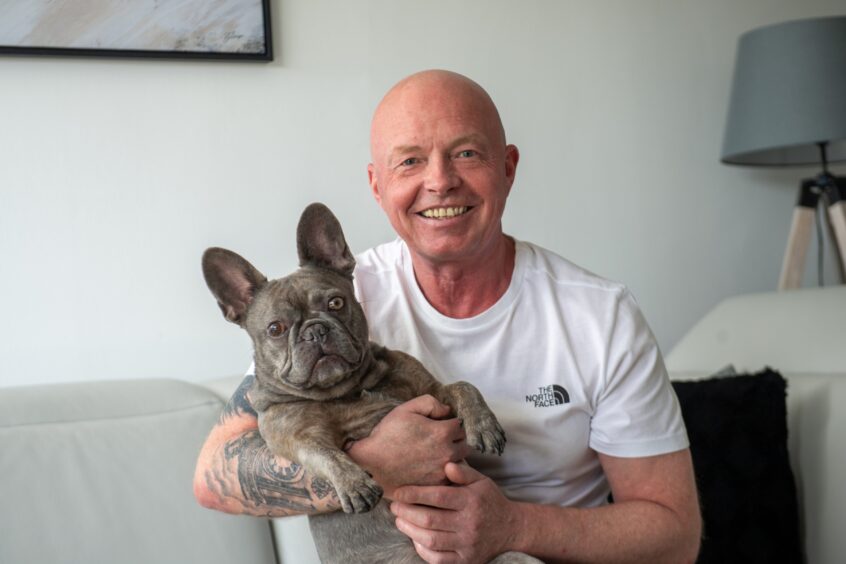
I do, and I’m fine. It’s only been a few months since my last blood test, so surely even Abbey can’t grumble.
But he doesn’t need to. His story does the work for him.
Like his rig crew, and all the other people who have met him, I walk away a little wiser — and a lot more grateful.
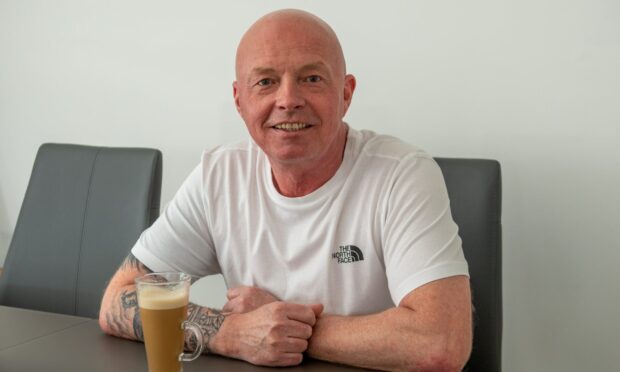
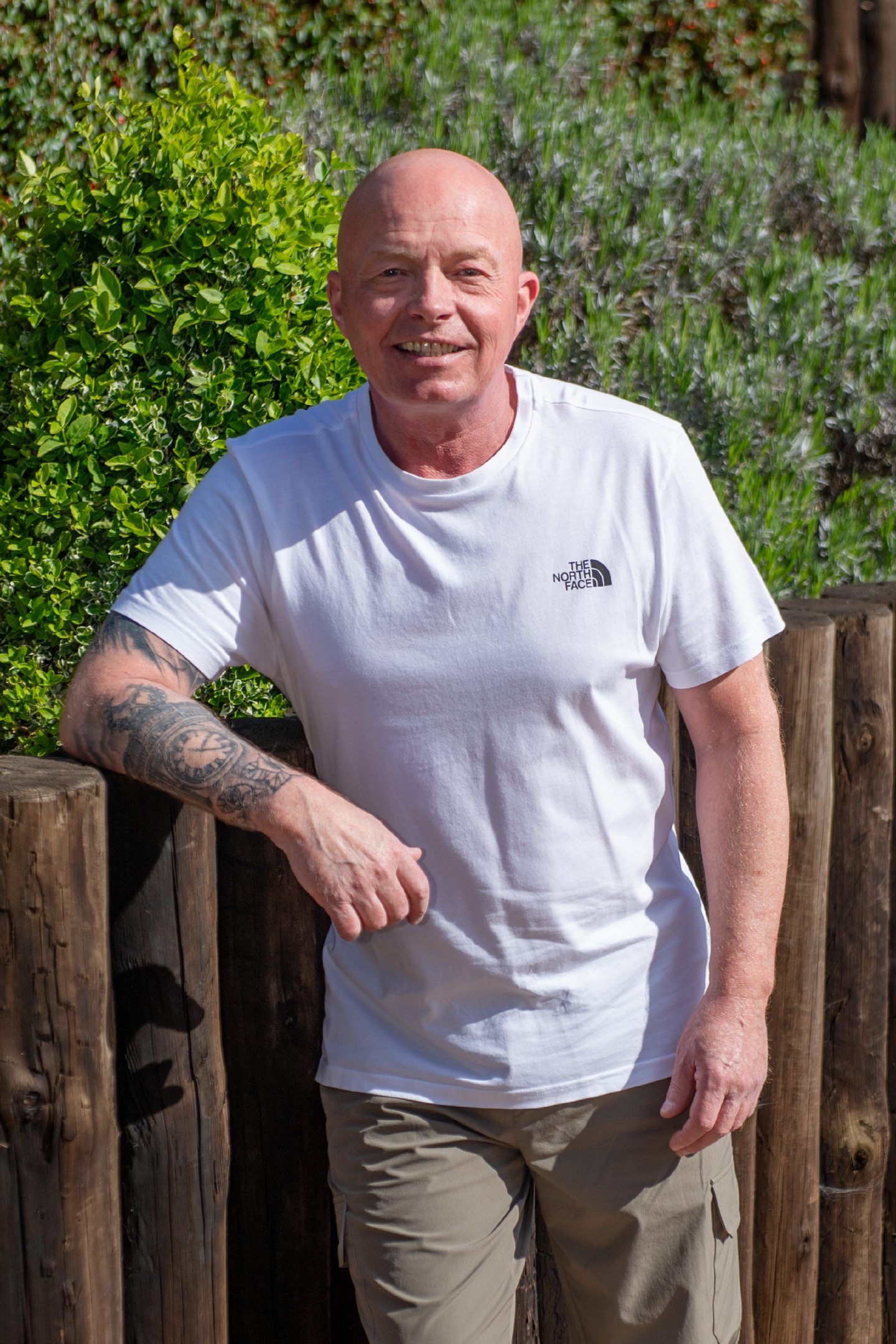

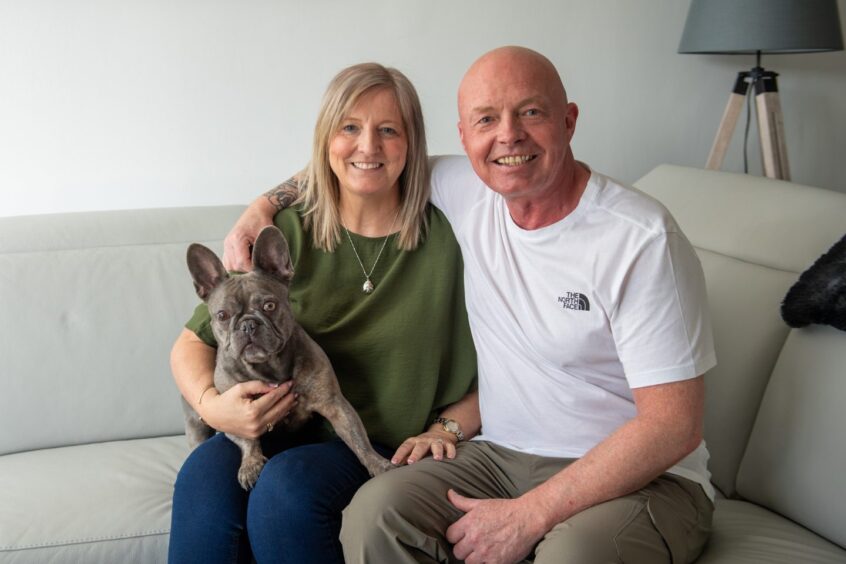
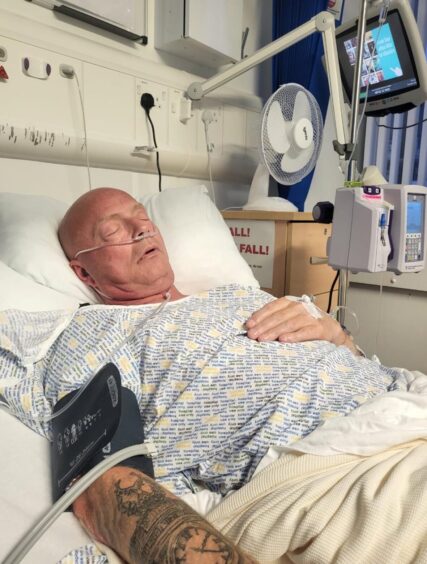
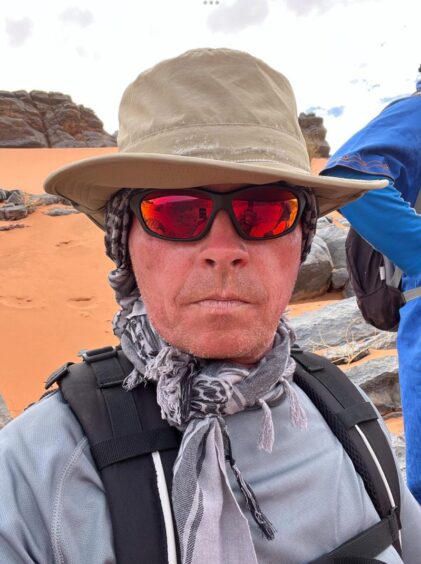
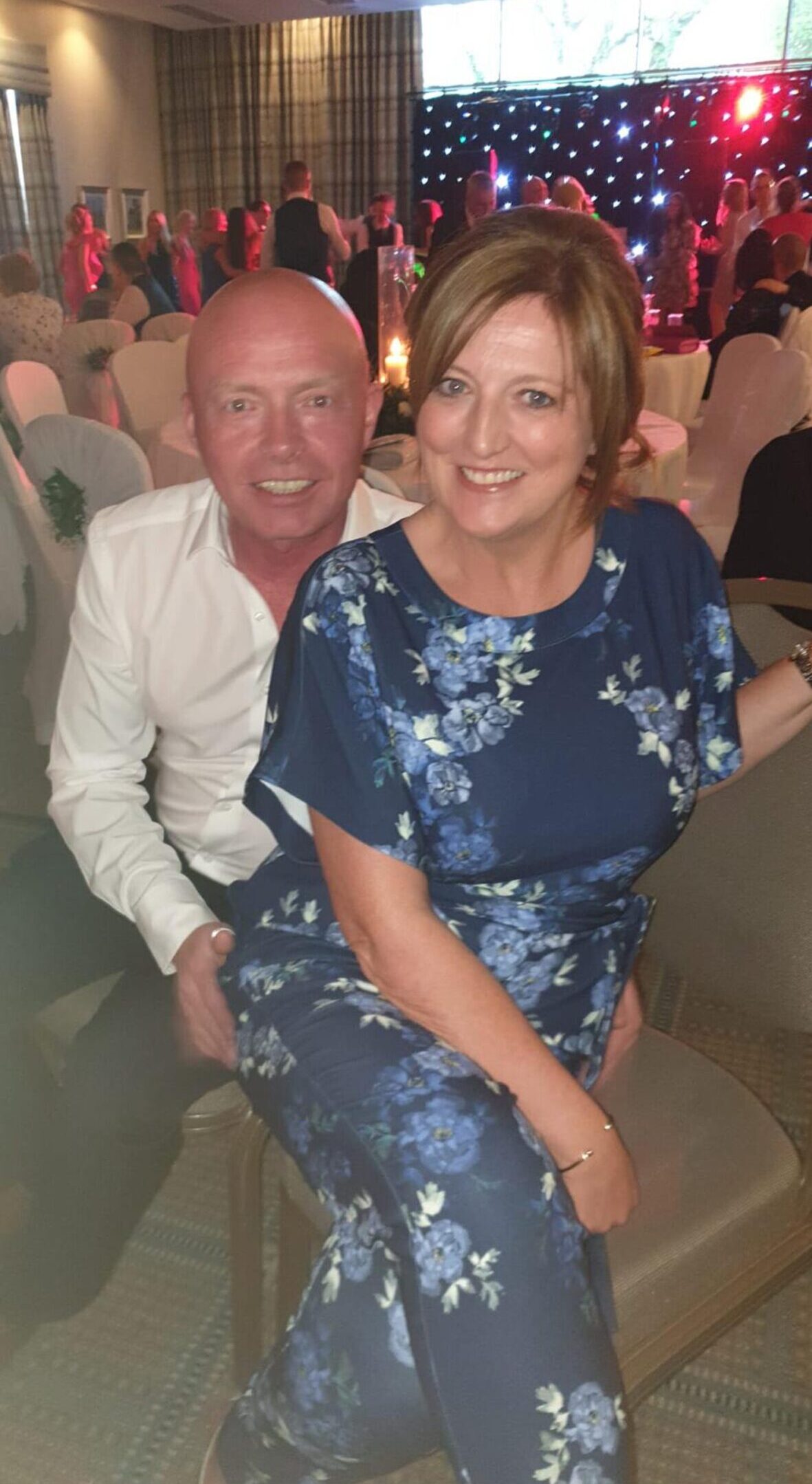
Conversation